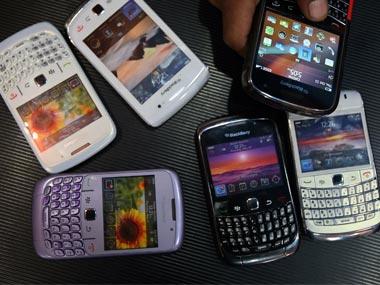New Delhi: If the Department of Telecom (DoT) goes ahead and cancels inter-circle roaming (ICR) pacts between telecom companies, the third generation (3G) services market may be crushed. DoT is right now seeking a legal opinion on the split verdict delivered by the Telecom Disputes Settlement and Appellate Tribunal (TDSAT) last week on this issue. Show-cause notices are being readied, Firstpost learns.
Telcos had been offering 3G services in those circles where they did not themselves possess 3G spectrum licences. Due to high base prices in the 2010 3G auctions, not a single telecom operator bagged pan-India 3G spectrum. 3G services allow faster internet access and downloads than 2G (second generation) but are about 60 percent costlier than plain voice services being offered under 2G.
Telcos had entered into ICR arrangements among themselves after the auctions so that their subscribers did not lose connectivity if they were roaming in circles where a particular telco had not been given 3G spectrum. But the DoT termed this practice illegal and wanted them to suspend ICR pacts; now TDSAT has offered a split verdict (the chairman ruled in favour of telcos whereas the second member upheld DoT’s view), which is being studied by the Attorney General.
[caption id=“attachment_372190” align=“alignleft” width=“380”]
 Telcos had been offering 3G services in those circles where they did not themselves possess 3G spectrum licences. Agencies[/caption]
Telcos had been offering 3G services in those circles where they did not themselves possess 3G spectrum licences. Agencies[/caption]
Now, analysts have begun cautioning against the debilitating effect any cancellation of ICR pacts would have on the overall 3G market. In any case, the 3G market in India has been slow to develop and remains underpenetrated. According to CLSA analysts Deepti Chaturvedi and Akshat Agarwal, five quarters after 3G services were launched in India, only 30 percent of its 25 million gross subscribers are active!
And in the last one moth, telcos have had to reduce tariffs to about a third of their original plans to stimulate the market but 3G services still remain much more expensive than 2G. In addition to promoting the new services, leading telcos have been aggressively reducing data tariffs, which are now down more than 65 percent since the launch and 34 percent in the latest cuts. Bharti is currently offering 300 Mb downloads at Rs 101 and 1 Gb at Rs 252, while Idea is offering 300 Mb at Rs 105 and 1 Gb at Rs 249. Most operators have also lowered charges on incremental usage beyond the free allocations by about 70 percent to Rs 3 per Mb to promote higher data usage.
Impact Shorts
More ShortsChaturvedi and Agarwal said in a note to clients on Monday morning, “In our view, the key reasons for the slow 3G ramp-up are that 2G data tariffs are still 60 percent cheaper. Meanwhile, although 3G handsets have been on the rise their number is still less than 10 percent of the total shipment. Also India’s smartphone penetration is still the lowest in the region. These are key to data revenue ramp-up.”
Telcos are hoping that with sharply reduced tariffs and cheaper devices being available, perhaps 3G penetration will pick up. In the last five quarters, device prices have come down from $ 150-200 to about $ 100 and in the next four-to-eight months, they could slide below the $50 mark. This, coupled with tariff reductions, could help the 3G market revive. Besides, some telcos have begun offering handsets bundled with 3G connections, further attracting customers to this nascent market.
But will tariff cuts help, even if DoT’s threat on ICR pacts’ cancellation is negated? Analysts have said in the past that instead of lowering 3G tariffs, telcos need to raise rates since most of them have incurred debts due to investments in buying 3G spectrum. Moreover, with the auction of 2G spectrum around the corner, telecom companies need to raise money for bids.
So will telcos raise tariffs to improve their bottomlines or continue to bleed? The uncertainty in 3G services will continue till DoT makes up its mind on ICR pacts and telcos make up their minds on whether to lower tariffs further or raise them in the interests of their own balance-sheets.
)